Soil compaction in farming is becoming increasingly problematic with bigger, heavier machinery and more intensive farming practices putting considerable pressure on farm land. Modern transport solutions from Stronga are ultra-light while remaining strong and durable, optimised with leading tyre technology and extra-friendly to your valuable land, ensuring you can maximise yield output and profits.
Discover the issues of soil compaction in farming, and learn more about Stronga's unique solutions to reverse the runaway trends in farming soil compaction impacts.
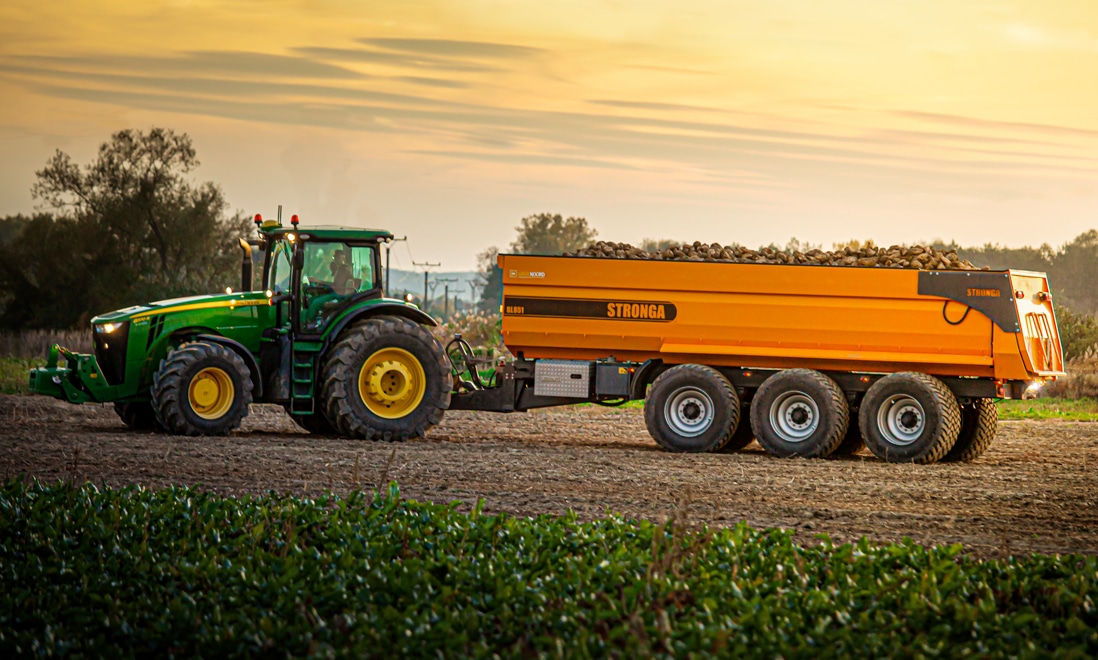
Farm Machinery is Heavier than Ever
Farm machinery is getting larger and heavier year on year.
Data shows that since the 1950s, the average weight of tractors has more than doubled from about 3 tonnes in the 1950s to over 7 tonnes at the turn of the century. This is significant because heavier traffic, among other factors, contributes to reduced farmland productivity. As vehicle weight increases, so does the depth to which compaction penetrates the soil substrate, regardless of the pressure at the surface.
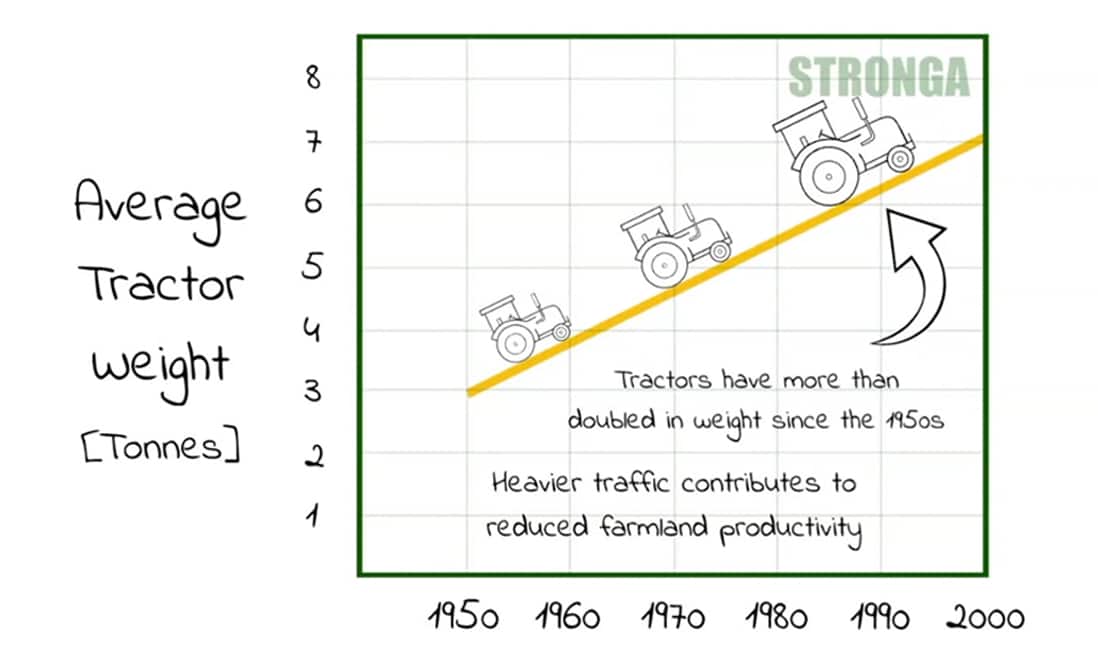
Considering Soil Conditions
Risk of compaction depends on soil conditions. The following soil characteristics are either beneficial for low risk of compaction or at high risk of serious degradation over time:
- Well-structured soils are the most resilient.
- Clayey and sandy soils are most vulnerable to compaction.
- Wet conditions increase the likelihood of compaction occurring.
- Higher levels of organic matter make soils more resistant to damage.
- Hard, dry soils are at risk because a lot of energy is required to work them.

Compaction Problems on Headlands
Compaction problems are often most prevalent on headlands given the additional load placed on the soil by heavy equipment turning in tight circles, with tyres and tracks scrubbing the soil surface in a swiping motion.
While compaction creates serious problems, soils that are too loose can also be highly problematic because they are especially vulnerable to re-compaction.

Impact on Agricultural Economy
Unsurprisingly, soil compaction in farming has a massive impact on the agricultural economy, collectively costing farmers 100s of millions every single year. In the UK alone, soil compaction in the modern day is estimated to cost farmers between £400 and £500 million. There are 4 principal reasons for this:
- Soil compaction is estimated to cut crop yields by roughly 10-15% (more information below);
- Increasing tillage energy, time and costs by up to 300%;
- Reducing soil water infiltration to almost zero;
- Exacerbating problems of run-off and flooding.
Pass #1 Greatly Affects Water Infiltration
It is estimated that reductions in soil porosity and water infiltration caused by traffic mean farmers lose more than a tenth of their crop yield, every harvest. Research has shown that pass 1 over soil causes the greatest reduction in infiltration rate, compacting particles and reducing space available for soil, air and water while limiting root pathways.

Compaction often constricts roots to a depth of just 35cm; meaning plants can't always access water and nutrients needed to maximise growth. In short, if you don't invest in land-friendly equipment and processes, your bottom line will be adversely affected.
With simple soil-friendly processes put in place, and clever investment in soil-friendly equipment from Stronga, farmers can reduce this 10-15% yield loss and enjoy bigger profits in the long term.

Stronga – Helping you Minimise Soil Compaction
Stronga have developed multiple innovation solutions to minimise soil compaction and help farmers benefit from more output and more profit. Tyre pressure has the greatest influence on the degree of compaction. That's why we offer a comprehensive choice of large diameter, low pressure, technical radial floatation tyres from proven brands like Nokian and Michelin – leader’s in the field of agricultural tyre technology.
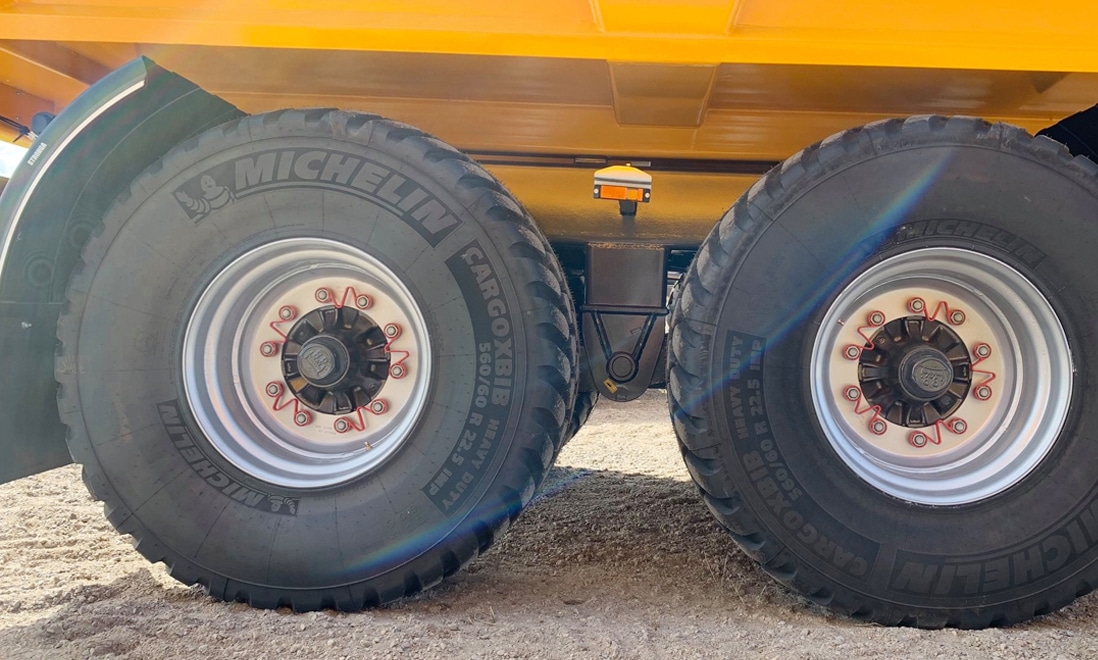
Experts in Low Ground Pressure Solutions
As well as offering a wide selection of technical tyre options, Stronga can help to advise clients on the best low ground pressure tyre for each individual situation, considering soil type, harvest scale, location, climate and more to offer the optimal solution.
As well as advising on optimum tyre selection, Stronga focus on the minimising weight of our farm equipment to maximise payload, strength and service life while reducing soil load. Where others are adding complexity and increasing tare weight, Stronga are leading the tare weight to payload ratio to deliver leading efficiencies with lowest soil impact.
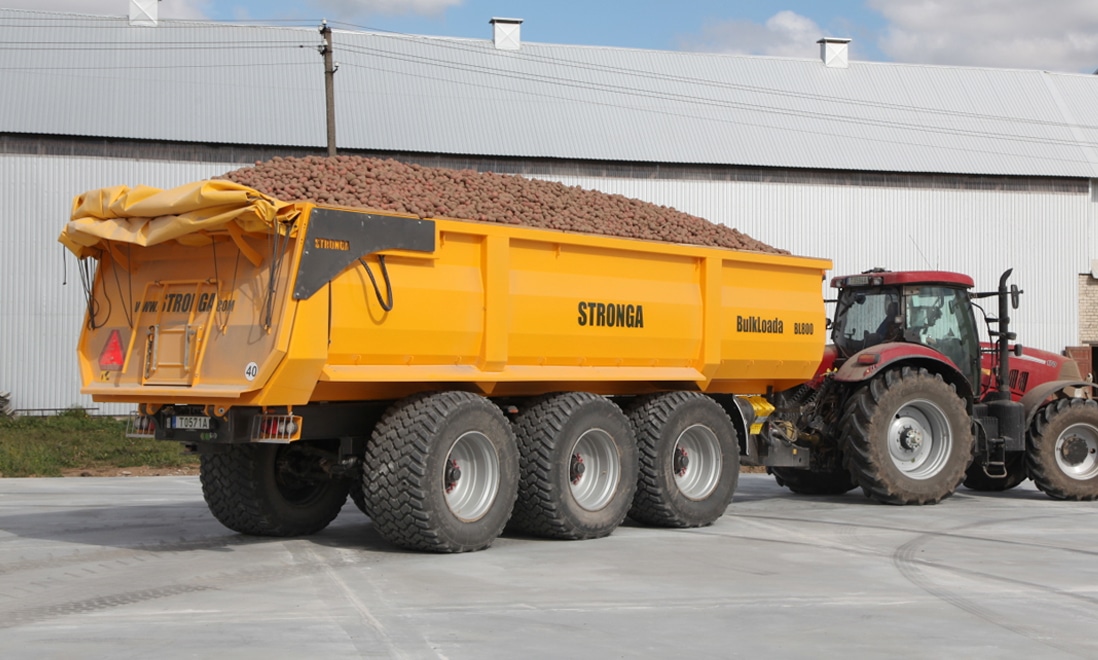
Light; but Still Strong & Reliable
Stronga achieve lightness, with no compromise to strength and reliability, using a wide range of proven design features, across our proven range of trailers:
1. Stronga trailers are built with Hardox wear plates which uniquely combine hardness and structural strength, making it possible to use thinner plates without compromising durability. When coupled with the optimum radial floatation tyre, our sleek designs offer the lightest touch in the field out of any trailer offered by the market.
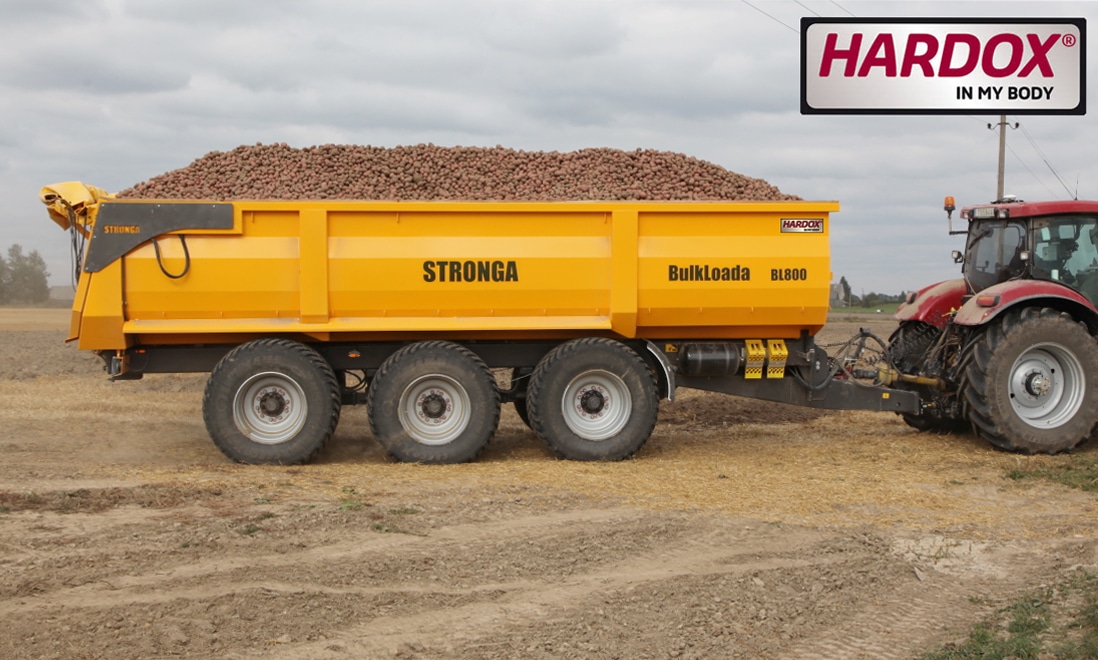
2. Clever Stronga innovations like the CommandSteer™ steering axle represent a significant progression away from heavier, problematic positive steering systems. CommandSteer™ offers several benefits in relation to soil compaction. First, less power is needed to pull the trailer, especially in cornering, so there is less smearing on those vulnerable headlands. Second, smaller tractors can be used to pull the trailer, meaning the whole system is significantly lighter in the field. Third, less power is needed to pull the trailer. This is especially important in wet conditions where CommandSteer™ can be the difference between getting stuck and causing extremely expensive soil damage.

3. Stronga offer well-proven PowerTrak™ driven axles in addition to the CommandSteer™ innovation. With the option the drive the trailers axles, users enjoy significantly less soil compaction when compared to traditional drag axles which smear the land.

4. Stronga hydraulic suspensions also reduce the risk of compaction by balancing axle and wheel loads better than sprung suspensions. Hydraulic suspensions reduce the power to pull the equipment over the terrain and are significantly gentler on the soil when compared to sprung solutions.

Stronga Lead the Tare Weight to Payload Ratio
Many farmers continue to farm their land using old, heavy, basic trailer technology not matching modern tractors; doing a lot of soil damage, each journey. Stronga encourage farmers to join the movement towards efficiency with soil-friendly solutions from Stronga.

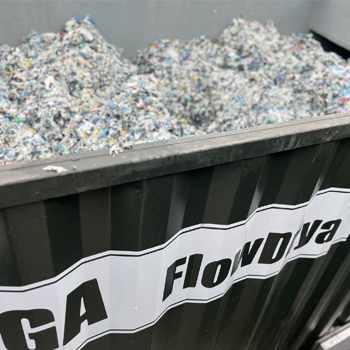
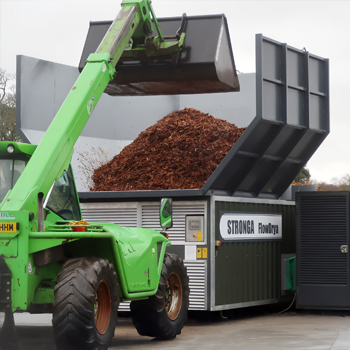
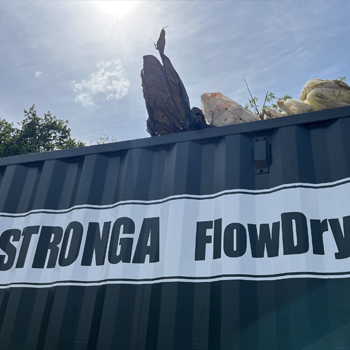
Share this post